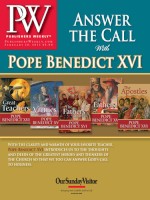In The Tao of Travel: Enlightenments from Lives on the Road (Houghton Mifflin Harcourt), prolific travel writer Paul Theroux collects insights from other writers, sources he deems "real and reliable travelers—not the sort who boast about their sunny experience in Happyland." We spoke with Theroux about his new book.
How did you go about collecting the writing in this book? Was there some systematic process, or did you just recall books you had read and enjoyed?
I had never done this sort of book before, and it was much more difficult than I had bargained on. I kept wishing that I had a secretary or an intern or half a dozen graduate students to get books for me and help with copying. But I did the whole thing myself—the libraries, the reading, the copying. I had a list of favorite books, of course, and I reread all of them; then I looked for more, canvassing my traveling and writing friends for suggestions. I was lucky in having the resources of the University of Hawaii library system, where I got a dozen books a week for perusal. Scarce books I bought on the Internet; others were loaned to me. I was continually reminded of the richness and wisdom in libraries, and the inaccuracy and questionable sources of much that passes for information on the Internet.
The chapter "The Things That They Carried" reveals some strange choices in writers' carry-ons: Smedley Roll-Neck Exercise Pants. Sealing wax. A portable toilet. Is there something you always take with you when you go?
I take three or four books, paperbacks that I give away (or swap) after I've read them. Books are more important than clothes. And a small short-wave radio. I travel with one carry-on–sized bag and never check it when I fly.
Is there anywhere left that you haven't been that you would like to go, or do you have a favorite place you'd like to revisit?
There are plenty of places I haven't been—Scandinavia, for example. I feel no compulsion to go there. I am drawn back to India and Africa—to ancient places where people are talkative and approachable, and preserve their traditional culture—language, music, dance, storytelling.



 Volume 258
Issue 09
02/28/2011
Volume 258
Issue 09
02/28/2011





